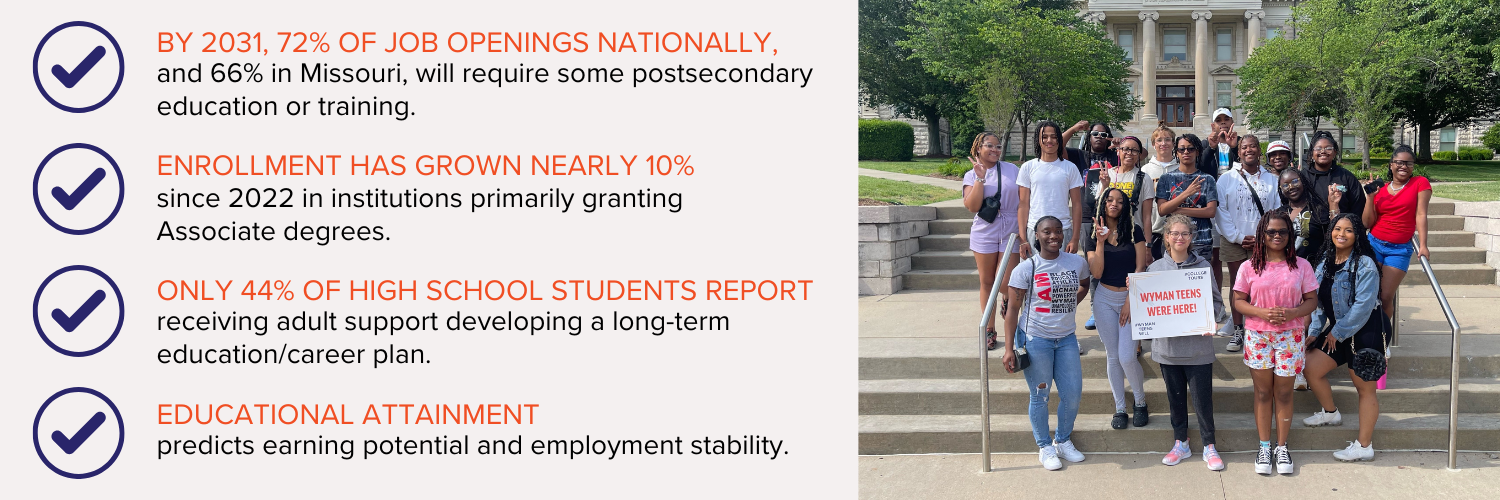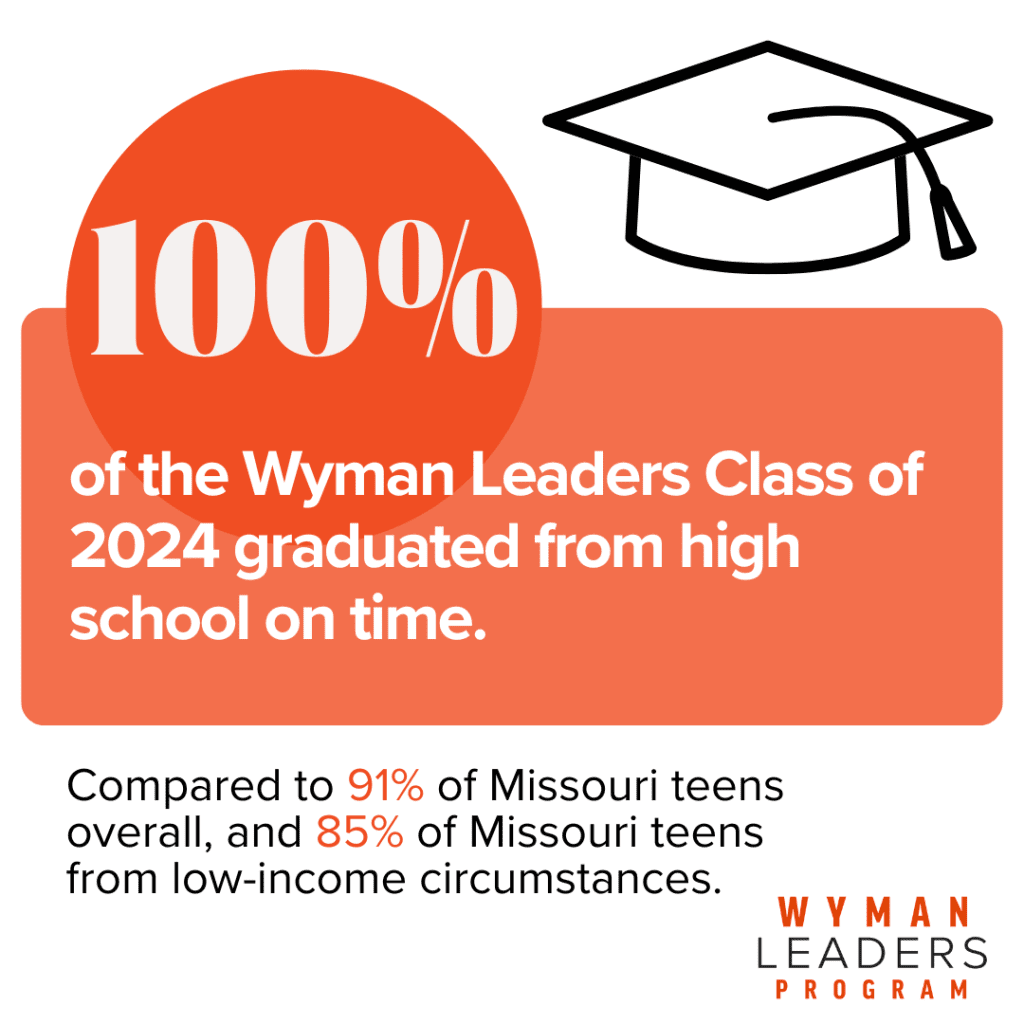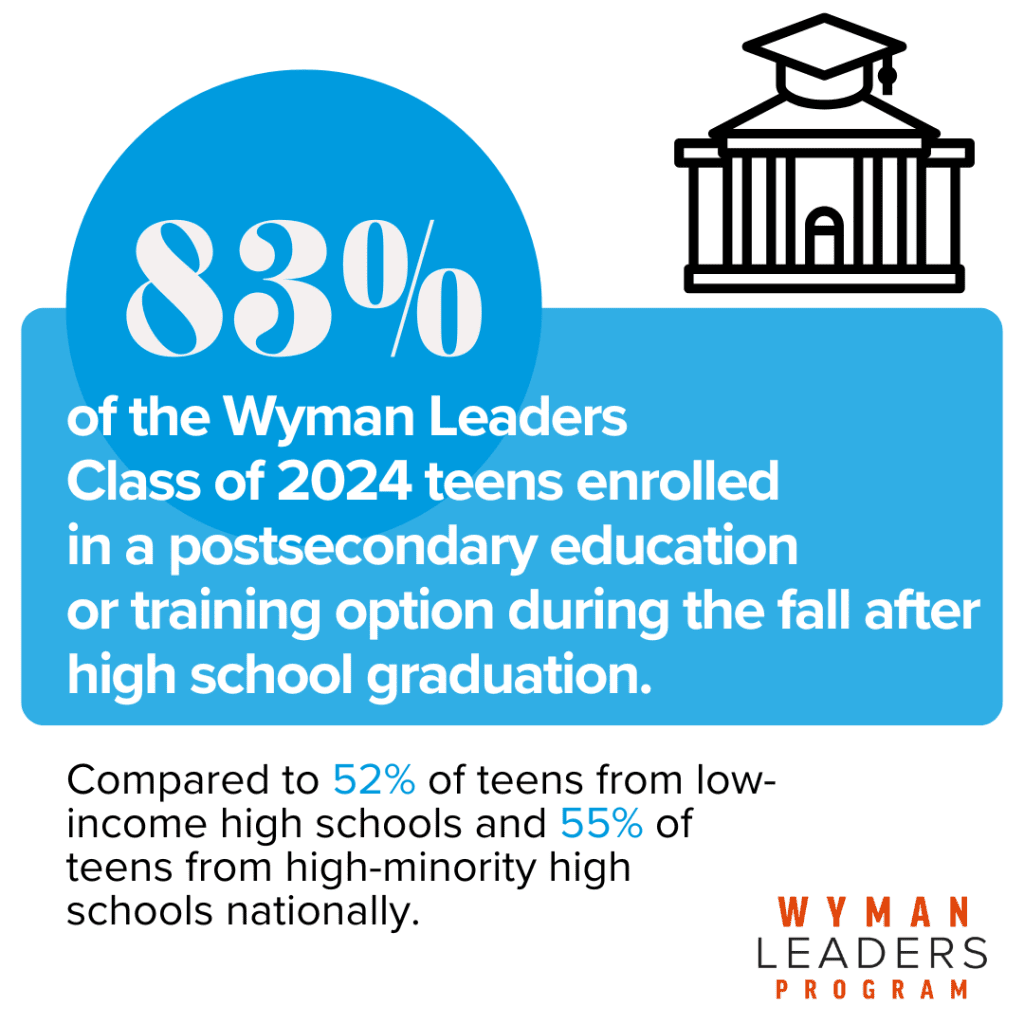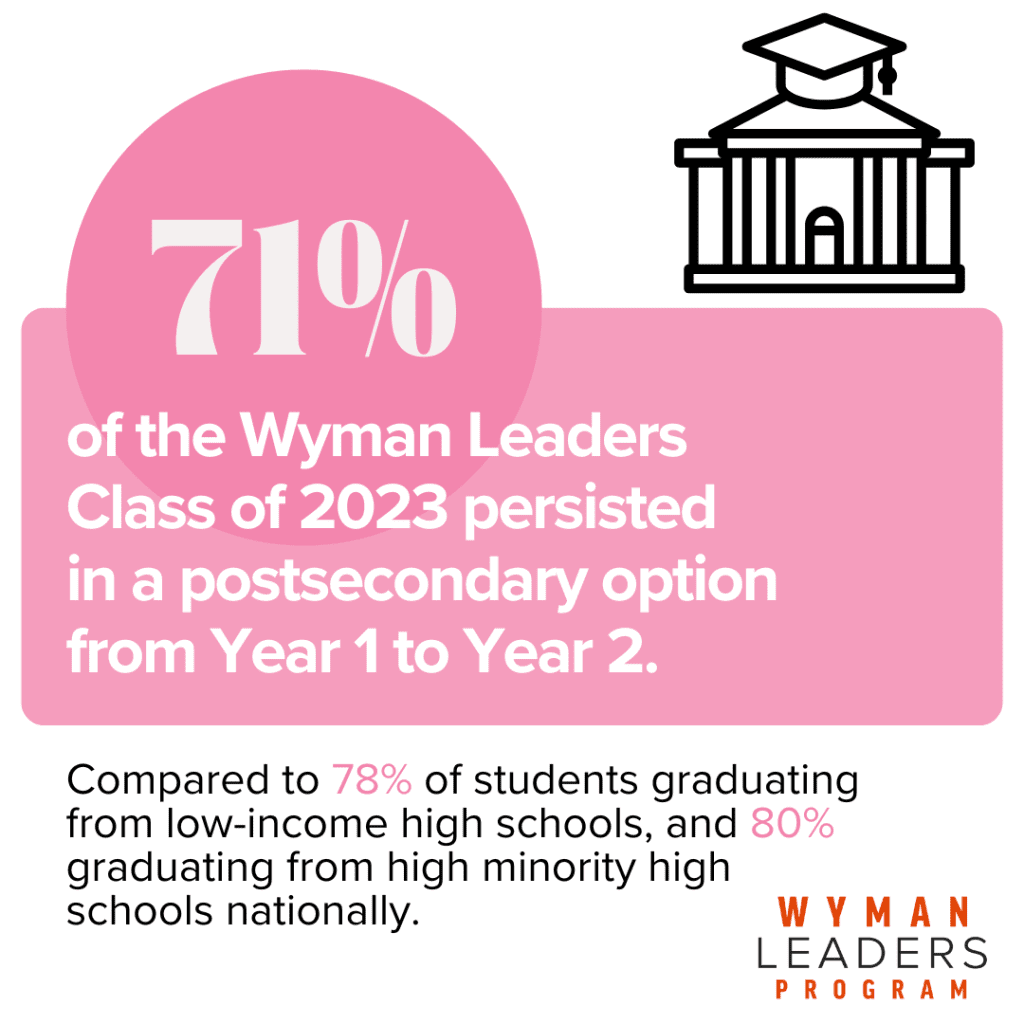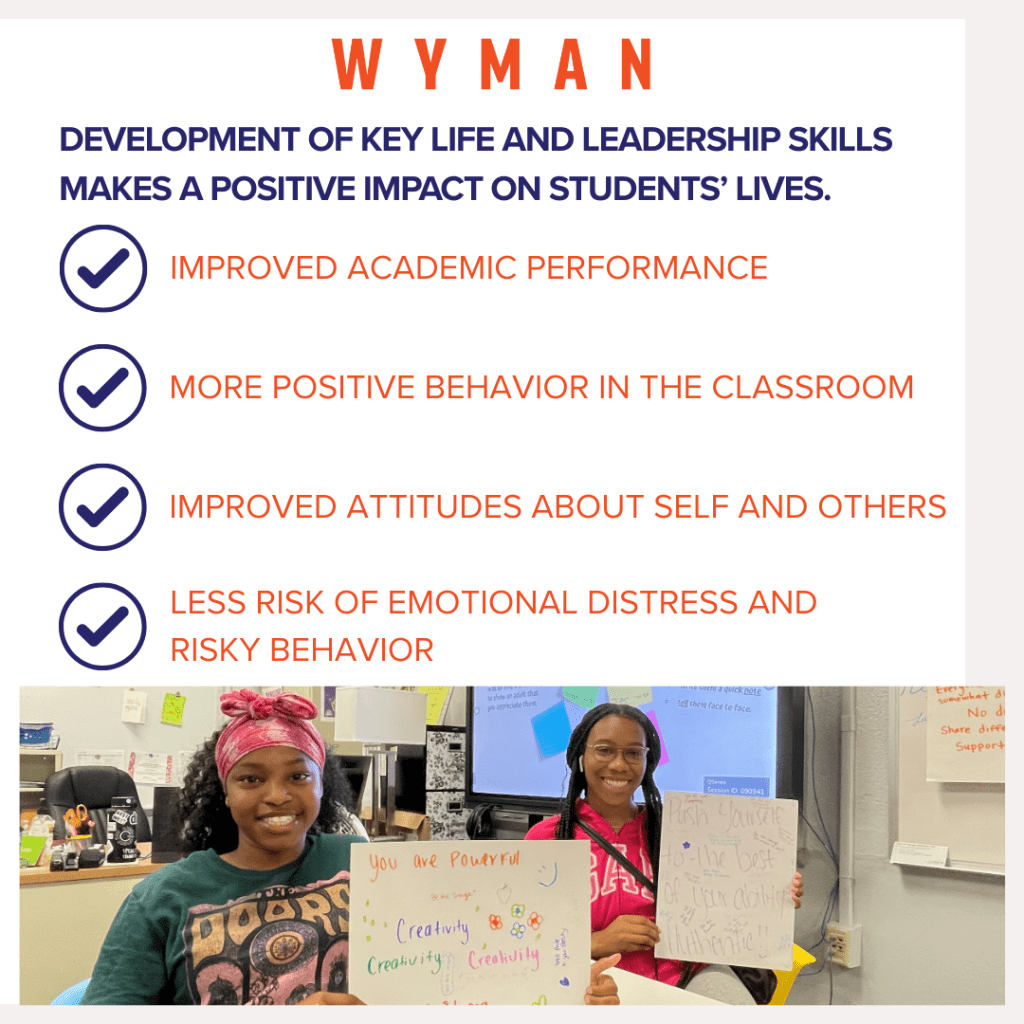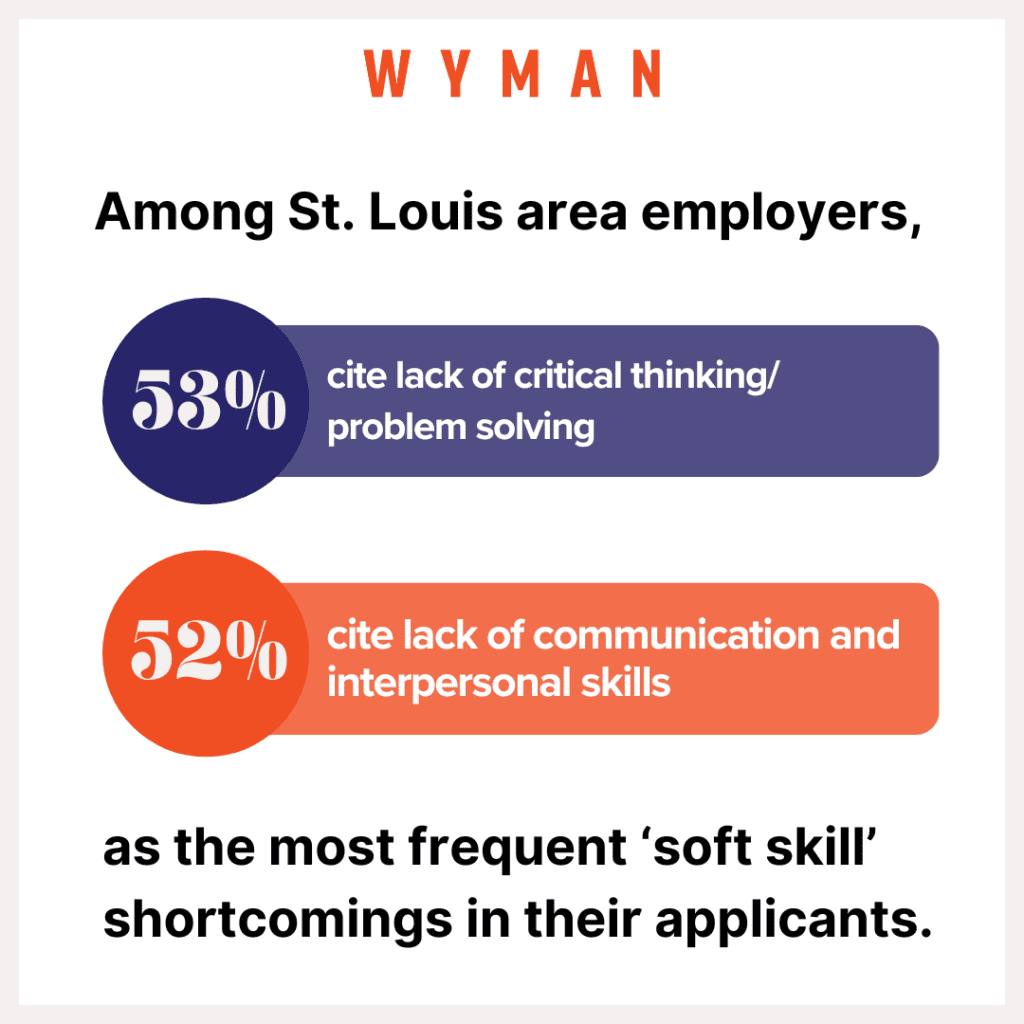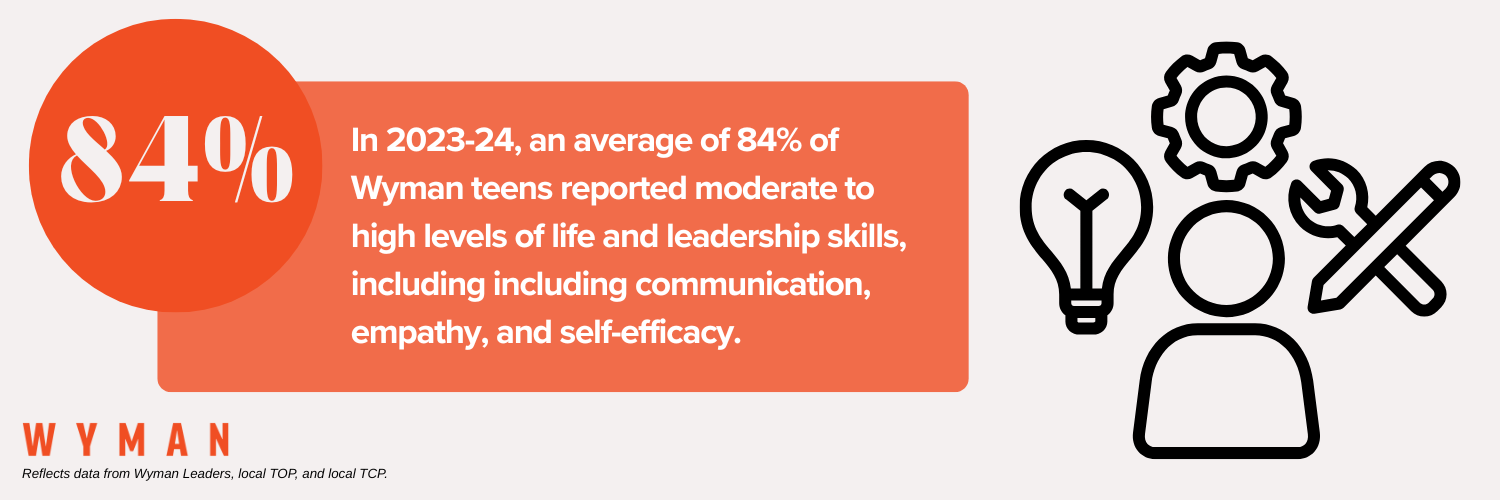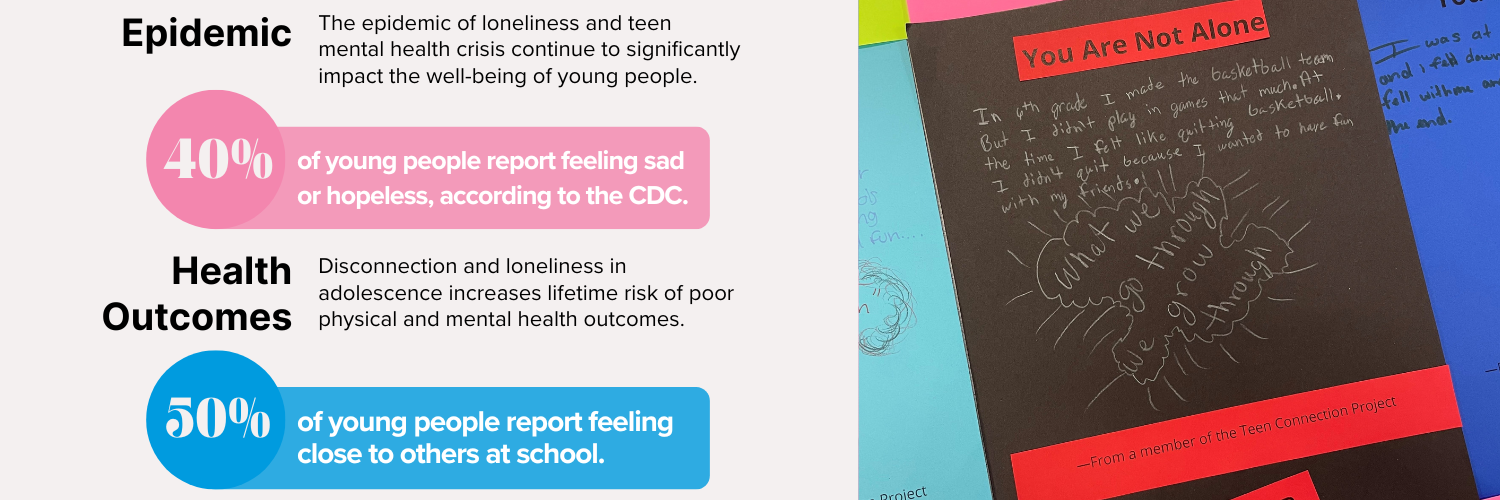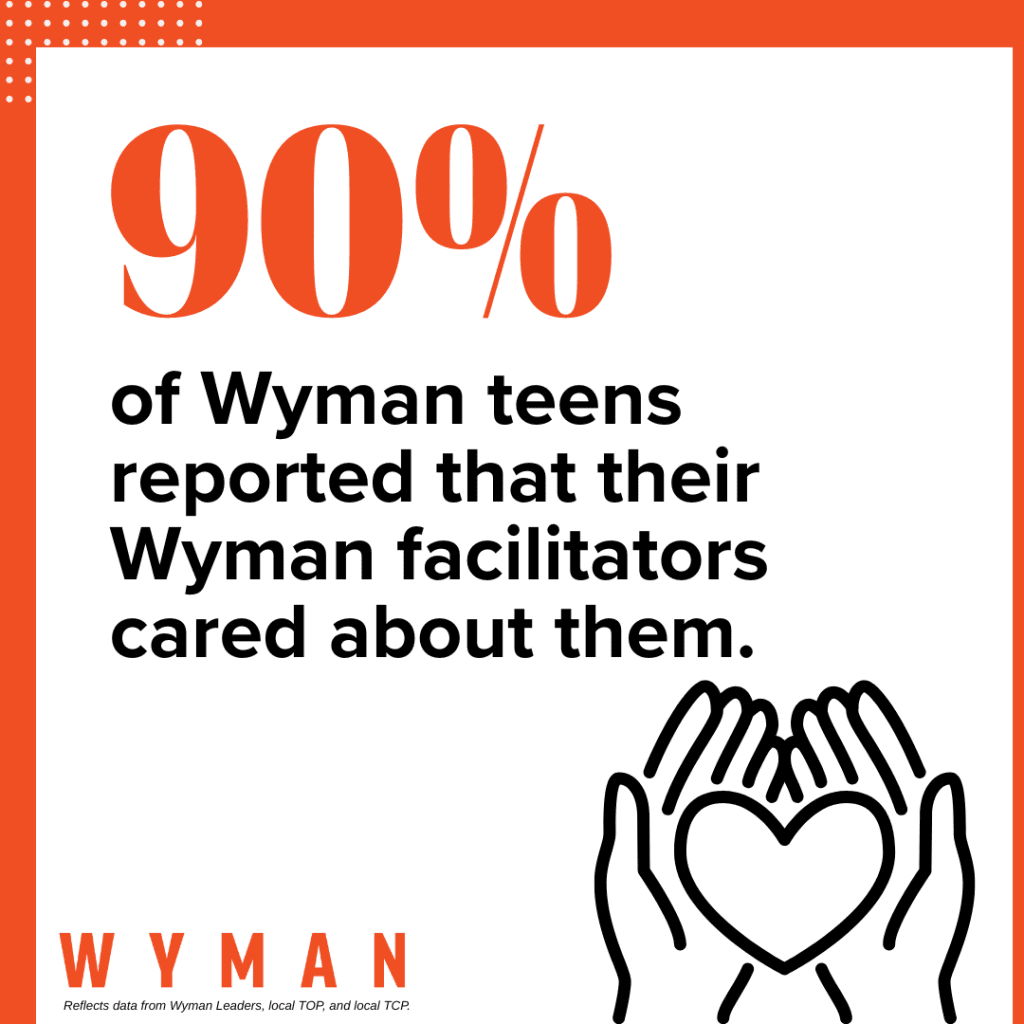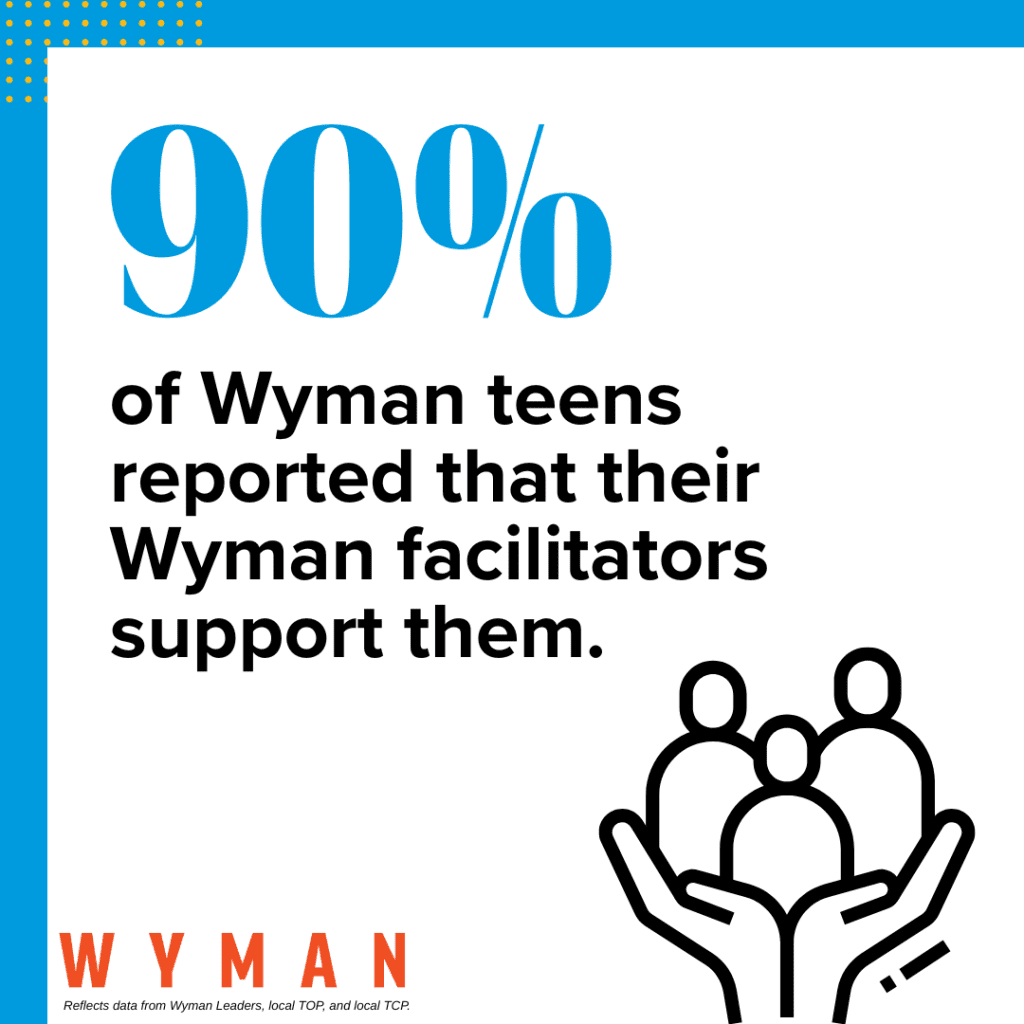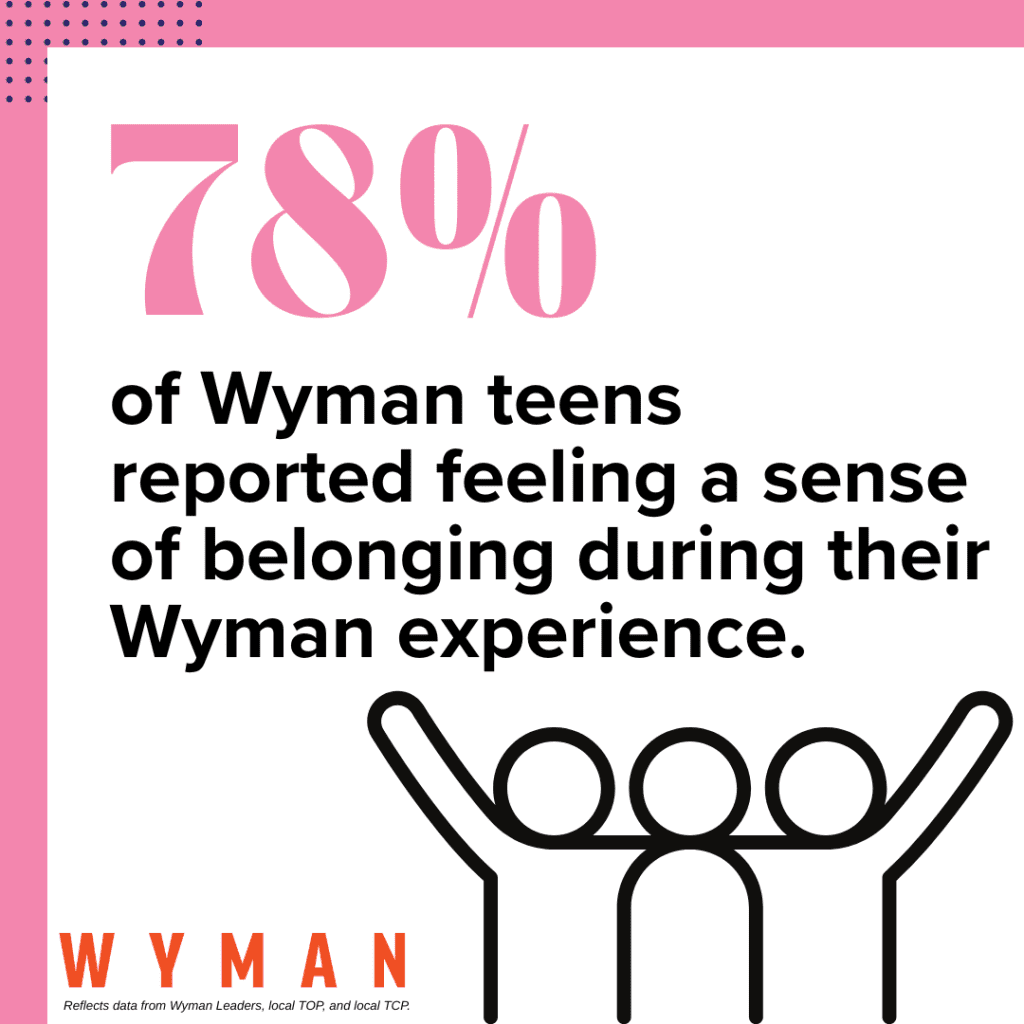
2023-24 Program Outcomes
3
Proven programs
25,000
Young people served through local and national partnerships
1,233
Young people directly served by Wyman.
70+
Local and national partners.
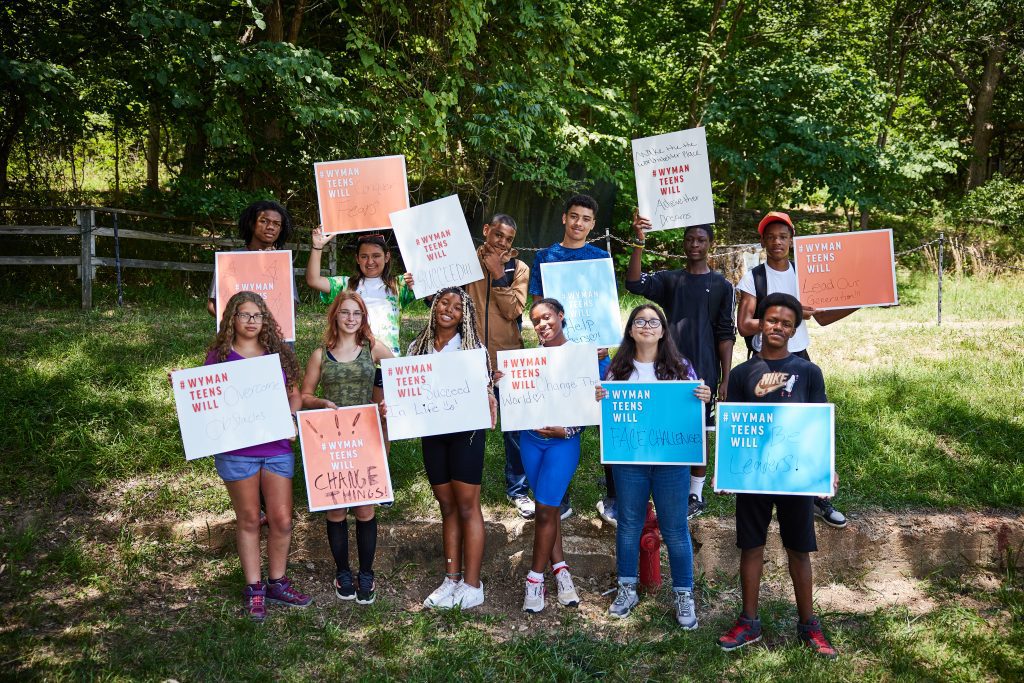
Adolescence can be a period of significant challenges. It is also a time of extraordinary growth and development. At Wyman, we implement proven programs to support teens during this pivotal time. The young people we serve are making progress that will have a lifetime of impact.
Across all three programs, Wyman teens are:
- Building positive, meaningful connections with their peers and supportive adults.
- Feeling a sense of belonging in a space where they get to be themselves.
- Developing the skills and competencies that are key to success in life – including communication, goal setting, decision-making, and critical thinking skills.
In the 2023-24 program year, 1,233 young people participated in Wyman’s three direct service programs – Wyman Leaders, the Teen Outreach Program® (TOP®), and the Teen Connection Project® (TCP®).
Scroll to an Outcome:
Postsecondary Access and Persistence
Relationships, Connections, and Belongings
Dig a little deeper:
Why are social connections and supportive relationships important for teens?
Wyman’s Response to the U.S. Surgeon General
The long-term, positive impact of Wyman Leaders
Prioritizing social connections through TCP
Our programs work:
Both TOP and TCP are recognized as Promising Programs by Blueprints for Healthy Youth Development and received CASEL’s highest designation for quality programming, among several other evidence-based recognitions.
We extended our reach through more than 70 partnerships locally and across the country to serve more than 2,500 young people in the St. Louis area, and more than 25,000 nationwide.
Our 2023-24 outcomes show that Wyman’s programs positively impact the life and leadership skills, behaviors and relationships, educational success, and overall well-being of the young people we serve. They demonstrate improved life skills, build connections, and feel a sense of belonging with their Wyman coaches and peers. Wyman Leaders continue to graduate from high school on time and enroll and persist in postsecondary education.
Dr. Vivek Murthy, the two-time U.S. Surgeon General, brought national attention to the importance of mental health, connection, and belonging. His parting prescription is what he calls the “triad of fulfillment” – relationships, service, and a sense of purpose. Research continues to affirm that these three elements are not only essential to health and happiness but are also key drivers of academic and career success, resilience, and mental well-being.
At Wyman, these values are at the heart of the work we do with young people:
- Through relationships, young people learn about others and discover more about themselves.
- Through service, young people take meaningful action and grow through giving.
- Through purpose, young people begin to understand not just what they want to do, but why it matters.
Right now, we are living in what Dr. Murthy called “an epidemic of loneliness, isolation, and social disconnection.” Those at greatest risk include members of marginalized groups, as well as adolescents and young adults. At Wyman, we serve young people who are dealing with isolation that impacts not only their mental health and social connections, but also their education and career choices.
We know this epidemic of loneliness continues, and we are committed to supporting young people and standing with them as they create the futures they envision for themselves. Wyman’s focus is on relationships, service, and a sense of purpose, and we are committed to ensuring ALL young people thrive.
Wyman is connecting teens to their voices, their strengths, and their futures through proven programs and supports. And, each day, they show us their courage, inspiration, skills, and determination to succeed.
Note: The outcomes below pertain to Wyman’s local, direct service programs and the 1,233 young people we directly served during the 2023-24 program year. For more information on our national replication, please visit our National Network. Additionally, the outcomes refer to young people in all three of our programs – Wyman Leaders, TCP, and TOP. For individual program outcomes, please refer to those program pages.
Wyman teens are graduating from high school, and enrolling and persisting in postsecondary education, at high rates.
Achieving a postsecondary degree or credential can be transformative. Nationally, we know the pandemic had a significant impact on postsecondary enrollment and persistence. Even prior to the pandemic, college affordability was an increasing concern. Currently, 70% of all bachelor’s degrees are awarded to young people from families in the top half of the income distribution, and bachelor’s degree completion rates are significantly lower for low-income and first-generation students.
However, undergraduate enrollment across income and racial groups has trended upward in the last few years, steadily returning to pre-COVID levels. There is particular interest in certificate programs, vocational-focused postsecondary programs, and institutes primarily granting associate degrees.
In an evolving postsecondary landscape, Wyman provides critical support as young people who face economic and systemic barriers navigate their options for the future. Wyman Leaders’ educational outcomes exceed those of youth with similar backgrounds and socioeconomic circumstances. 100% of the Wyman Leaders Class of 2024 graduated from high school on time. Additionally, postsecondary enrollment and rates of persistence among Wyman Leaders postsecondary students continue to be high, with 83% of the Class of 2024 enrolling in a postsecondary option during the Fall of 2024, and 71% of the Class of 2023 persisting in a postsecondary option from Year 1 to Year 2.
Wyman teens are developing life and leadership skills and competencies that are important for success in life.
Research shows that life and leadership skills are critical and go ‘hand-in-hand’ with academic and life success. These skills include communication, managing emotions, solving problems, making decisions, developing empathy, and establishing and maintaining positive relationships.
Wyman’s life and leadership outcomes have remained strong and steady over the last several years. The young people in our programs are developing skills like communication, empathy, self-efficacy, goal setting, and problem-solving that will prepare them for educational and career success. In the 2023-24 program year, an average of 84% of Wyman teens reported moderate to high levels of life and leadership skills.
Wyman teens are building connections with supportive adults and feeling a sense of belonging.
Wyman programs support young people as they build and maintain relationships, connections, and a sense of belonging with their peers and caring, adult facilitators. Now, more than ever, these have been recognized as essential supports to young people, their well-being, and their success.
Our outcomes show Wyman teens report having positive, supportive relationships with their Wyman facilitators. 90% reported that their Wyman facilitators support them and 78% report feeling a sense of belonging during their Wyman experience.
It is critical for students to feel valued, accepted, and celebrated for who they are. This has always been important at Wyman. We know that healthy relationships with peers and adults, and a sense of belonging, are critical to teens’ health, well-being, and positive life trajectories. We are ready to support and build these positive relationships through each of our programs.
Sources:
AAP-AACAP-CHA Declaration of a National Emergency in Child and Adolescent Mental Health, 2021
Atwell, M. (2023). The role of social and emotional learning in future workforce readiness. University Park, PA: Edna Bennett Pierce Prevention Research Center, The Pennsylvania State University.
Breen, Stephanie M., Brunt, Nicole, & Vaughan III, Terry. (2024). Is College Worth It?: Black, Latinx, and Indigenous Student Voices on the Value of Postsecondary Credentials – A Comprehensive Education Report. Washington, DC: The Pell Institute for the Study of Opportunity in Higher Education, Council for Opportunity in Education (COE).
Cahalan, Margaret W., Brunt, Nicole, Vaughan III, Terry, Montenegro, Erick, Breen Stephanie, Ruffin Esosa, & Perna, Laura W. (2024). Indicators of Higher Education Equity in the United States 2024: 50-Year Historical Trend Report. Washington, DC: The Pell Institute for the Study of Opportunity in Higher Education, Council for Opportunity in Education (COE) and Alliance for Higher Education and Democracy of the University of Pennsylvania (Penn AHEAD).
Carnevale, A.P., Smith, N., Van Der Werf, M., & Quinn, M.C. (2023). After everything: Projections of jobs, education, and training requirements through 2031. Washington, DC: Georgetown University Center on Education and the Workforce.
Centers for Disease Control and Prevention. Youth Risk Behavior Survey Data Summary & Trends Report: 2013-2023. U.S. Department of Health and Human Services; 2024.
Dermody, C., Dusenbury, L., Greenberg, M., Godek, D., Connor, P., Cross, R., Martinez-Black, T.,
Solberg, S., Kroyer-Kubicek, R., Atwell, M., Bridgeland, J. (2022). A Developmental Framework for the Integration of Social and Emotional Learning and Career and Workforce Development. CASEL.
Holt-Lunstad, J. (2022) Social connections as a public health issue: The evidence and a systemic framework for prioritizing the “social” in social determinants of health. Annual Review of Public Health: 43, 193-213.
Jones, S. M., Brush, K., Wettje, S., Ramirez, T., Poddar, A., Kannarr, A., et al. (2022). Navigating SEL From the Inside Out: Looking Inside and Across Leading SEL Programs: A Practical Resource for Schools and OST Providers (Middle & High School Focus). New York, NY: The Wallace Foundation.
Missouri Department of Elementary and Secondary Education (DESE), 2024
National College Access Network (Class of 2019), 2021 Benchmarking Report
National Student Clearinghouse Research Center
State of the St. Louis Workforce, St. Louis Community College, 2024.
The U.S. Surgeon General’s Advisory on the Healing Effects of Social Connection and Community, 2023
Torre Gibney, T., & Rauner, M. (2021). Education and career planning in high school: A national study of school and student characteristics and college-going behaviors (REL 2022–127). U.S. Department of Education, Institute of Education Sciences, National Center for Education Evaluation and Regional Assistance, Regional Educational Laboratory West. http://ies.ed.gov/ncee/edlabs.
Wyman Leaders 2024 Annual Survey, TOP 2023-2024 post survey, and TCP Fall 2023 and Spring 2024 Post Surveys
YouthTruth Student Survey (2023): The Class of 2023: Who Plans to Go to College?
Note: Wyman postsecondary data includes youth enrolling in 2-year, 4 year, technical/trade schools, or the military in the fall semester.


